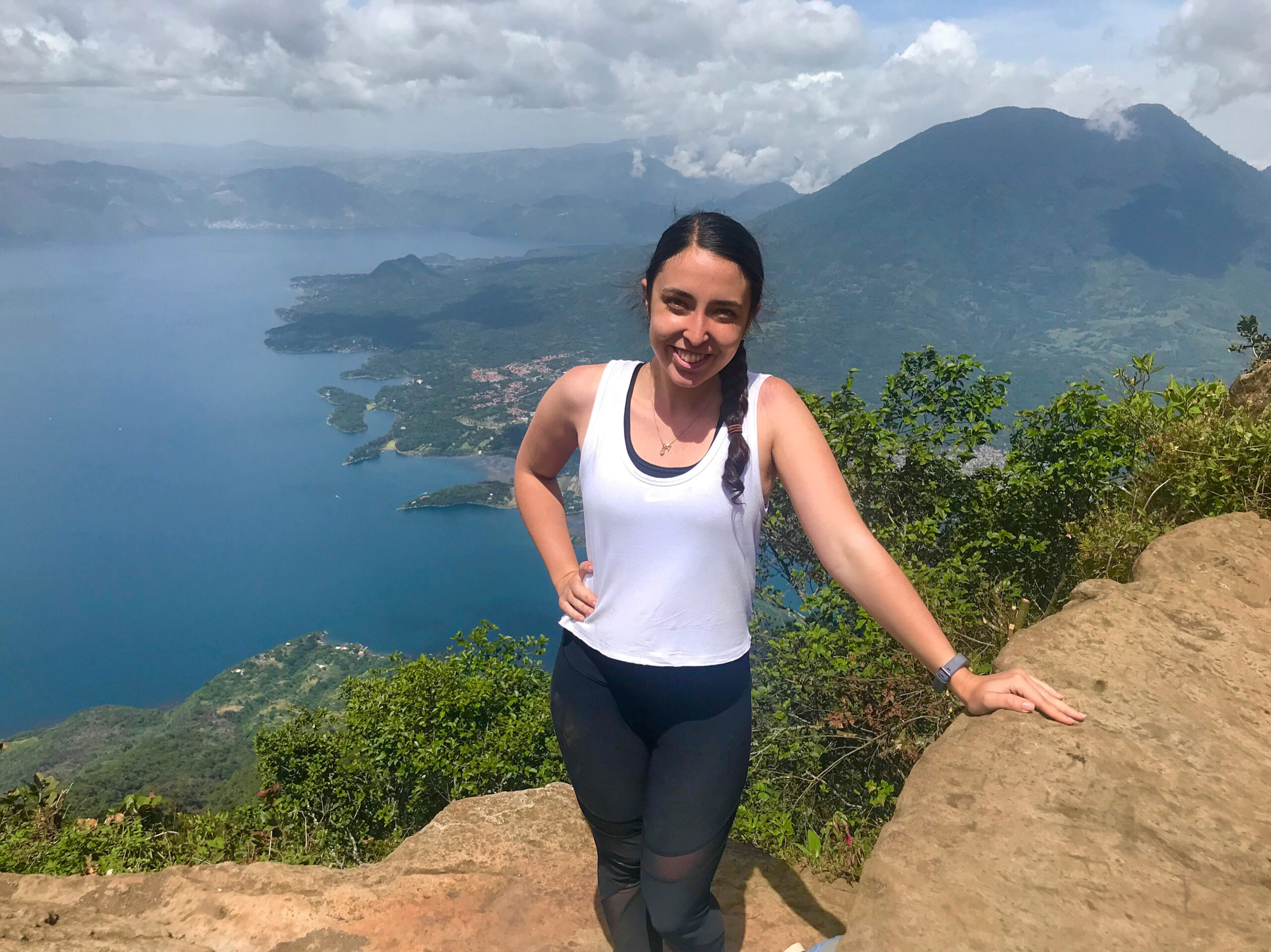Anthropological Research in Guatemala
By: Sarah Jacobs, CAS ’19

Guatemala Health Initiative – Santiago Atitlan
During my time in Santiago Atitlan, Guatemala, I’ve done a great deal of traveling and immersing myself in my host culture. I’ve learned to weave, make tortillas, and the proper way to put on a Huipil, the traditional dress of the women in my community. I’ve seen Mayan pyramids, hiked volcanoes, and stood under the famous yellow arch of Antigua. None of this compares to the work I’ve been able to do through Guatemala Health Initiative.
Through Penn Anthropology I am conducting a research investigation into the drug procurement patterns of diabetics in the Lake Atitlan region. In my research, I have conducted over 70 interviews with pharmacists, doctors, purveyors of traditional medicine, and patients about diabetic treatment options in the community. Each interview is different, with each person providing a new perspective on the barriers the community may face to receiving medications or why certain populations may choose one treatment over the other. These interviews span the public and private sectors covering the vast range of experiences tied to these medicines by socioeconomic status and medical institution.
In meeting such a wide variety of community members and finding their opinions of diabetic treatment options not only have I explored my research interests, but I subliminally formed even deeper connections with my host community. I’ve never felt more immersed in a host culture than through my work because it involves actively listening to community members on a topic I may never have scraped through simply being a tourist or living in Santiago Atitlan doing another kind of work. Through anthropological methods, I’ve experienced another deeper level of understanding and appreciating my host culture because community members welcomed me into their homes and shared their stories with me. Now when I walk down the street I often run into people I’ve interviewed, smile, and wave. A place once so foreign to me now is small enough to have casual run-ins on a daily basis.
Each night I eat dinner with my homestay family, my tighter knit network in Santiago, and I get to discuss with them my findings for the day, off the record. I realize through this nightly ritual that discussing something as personal as health allows me to form closer bonds with all of those around me. This is one of the many reasons I want to pursue a career in medicine because I can open the dialogue on topics that are unconventional or even scary for people who may have otherwise suppressed their opinion. My internship reaffirmed not only my love for medicine but how I can use anthropology to inform my career for years to come.
The Global Research and Internship Program (GRIP) provides outstanding undergraduate and graduate students the opportunity to intern or conduct research abroad for 8 to 12 weeks over the summer. Participants gain career-enhancing experience and global exposure that is essential in a global workforce. Placements and funding awards are available.